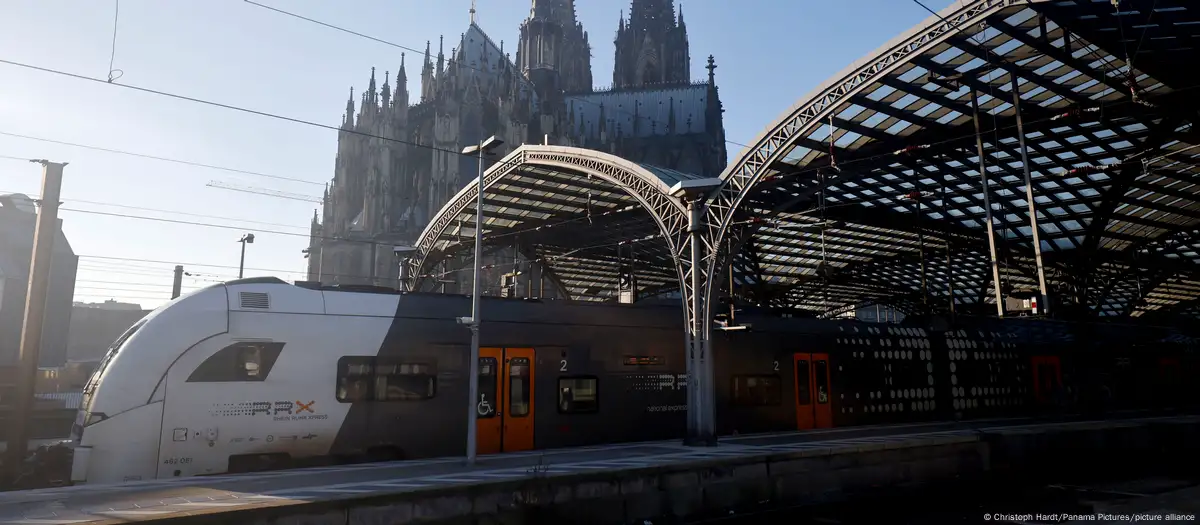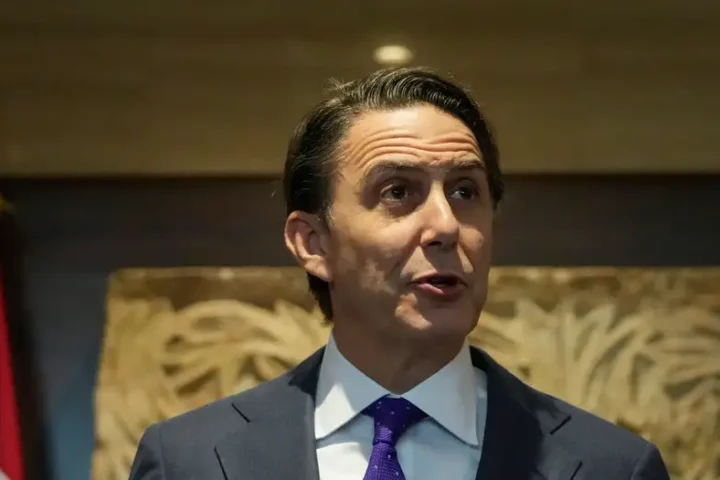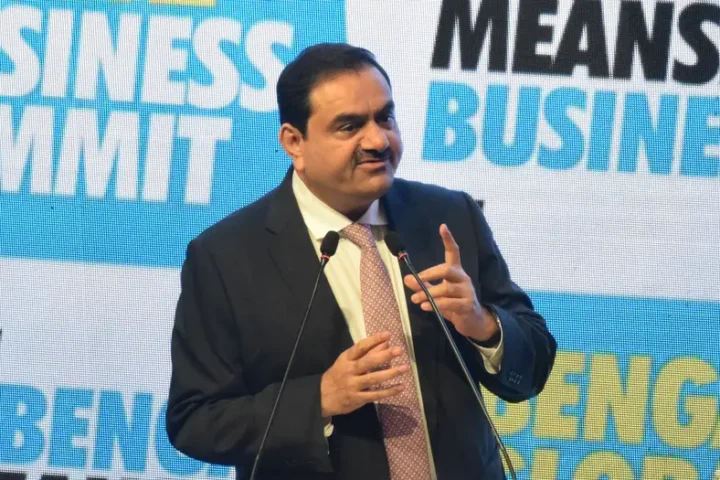Construction work will leave the German city almost entirely cut off from rail services overnight on Friday. The closure is the latest headache for Deutsche Bahn passengers in recent months.
Cologne Central Station will be closed to all trains from 9 p.m. on Friday until 5 a.m. the following morning, according to the German railway operator Deutsche Bahn.
The closure, due to construction work to install new electronic signal boxes, will also affect Köln-Messe/Deutz station and local S-Bahn trains.
As a result, the western German city will be almost completely cut off from train traffic on Friday night.
“We advise avoiding non-essential travel to and from Cologne that night,” Deutsche Bahn said. Extensive replacement bus services will be organized to cover the disruption.
Many high-speed InterCity Express (ICE) trains will not stop at Cologne Central Station. Consequently, ICE trains from northern Germany will mostly stop in Düsseldorf, and those to or from Brussels will do so at Cologne-Ehrenfeld.
Germany’s railway woes
Deutsche Bahn is in a delicate financial situation, having reported a loss of €1.2 billion ($1.34 billion) in the first half of the year.
Passengers have also been increasingly affected by delays and cancellations due to frequent maintenance and repair work. In 2023, more than every third long-distance train operated by Deutsche Bahn was late.
Earlier this month, Deutsche Bahn’s board of directors met to discuss a plan to improve the company’s infrastructure, daily operations, and financial situation. The company had already announced plans to lay off up to 30,000 employees.
Volker Wissing, the German Transport Minister, said last week that the Deutsche Bahn should aim to be profitable quickly.
“Deutsche Bahn must generate profits, not in five or six years, but as soon as possible,” Wissing told the German broadcaster ZDF.
Deutsche Bahn to sell its logistics subsidiary
Deutsche Bahn announced two weeks ago that it was selling its logistics subsidiary Schenker to the Danish company DSV in order to reduce its debt.
With the sale, agreed for €14.3 billion and expected to be completed next year, the German company will part with one of its few successful business divisions.
“The sale of DB Schenker to DSV marks the largest transaction in Deutsche Bahn’s history and gives our logistics subsidiary a clear growth perspective,” Deutsche Bahn CEO Richard Lutz said.
Where do Deutsche Bahn’s problems come from?
Over the past two decades, investment in rail infrastructure in Germany has decreased while the number of trains has increased, leading to an overloaded network.
The company plans to invest billions of euros in infrastructure and reforms to have a high-performance network by 2030.
Additionally, in the past year, Deutsche Bahn train drivers have gone on strike multiple times, demanding better working conditions. The lack of agreement between the company and the train drivers’ union GDL even led to the longest rail strike in the country’s history.









